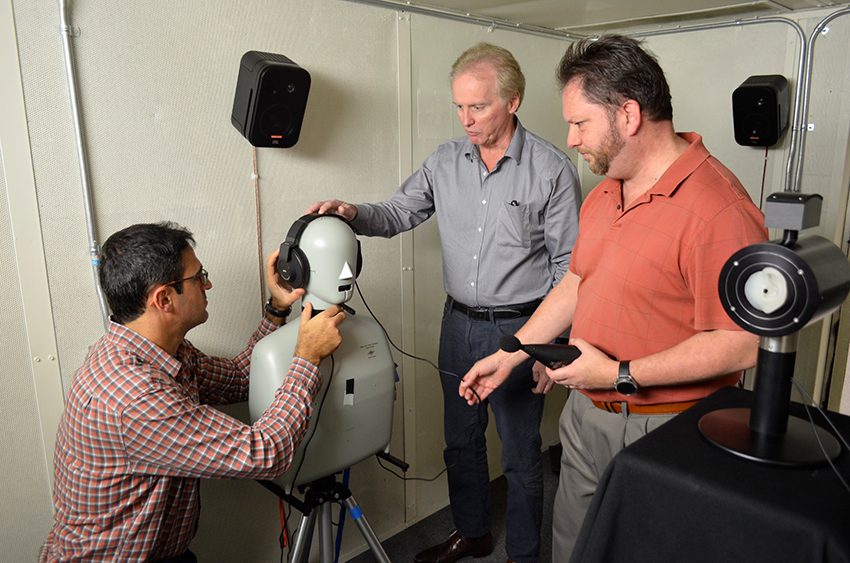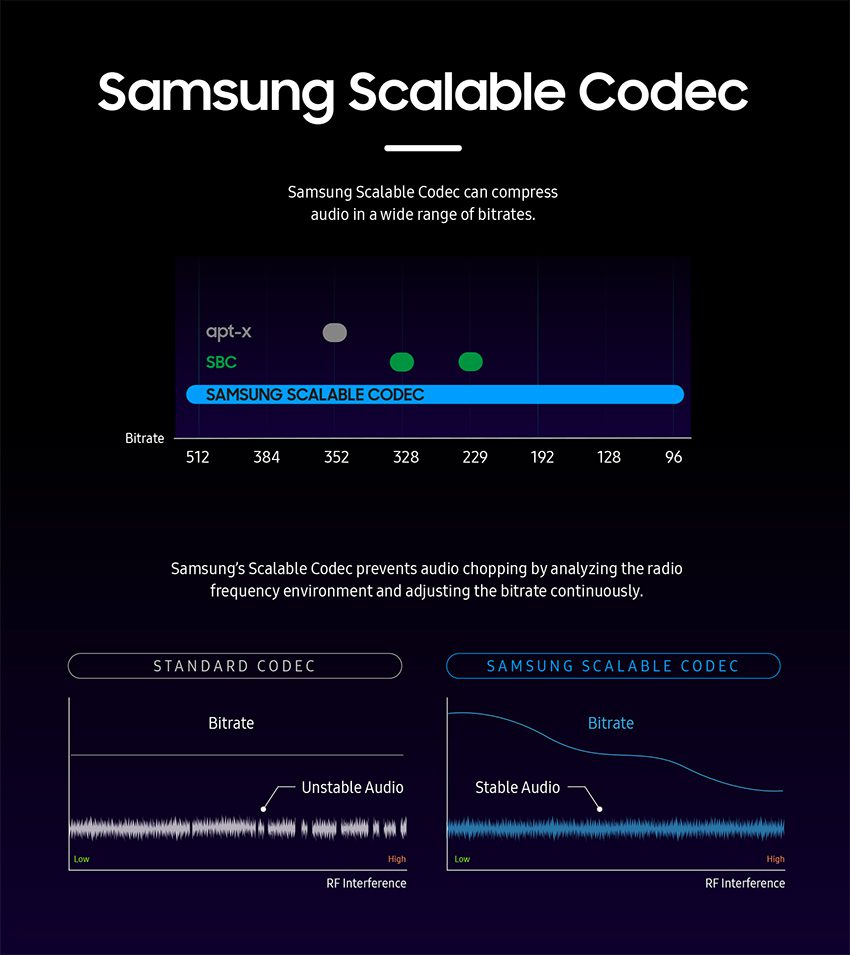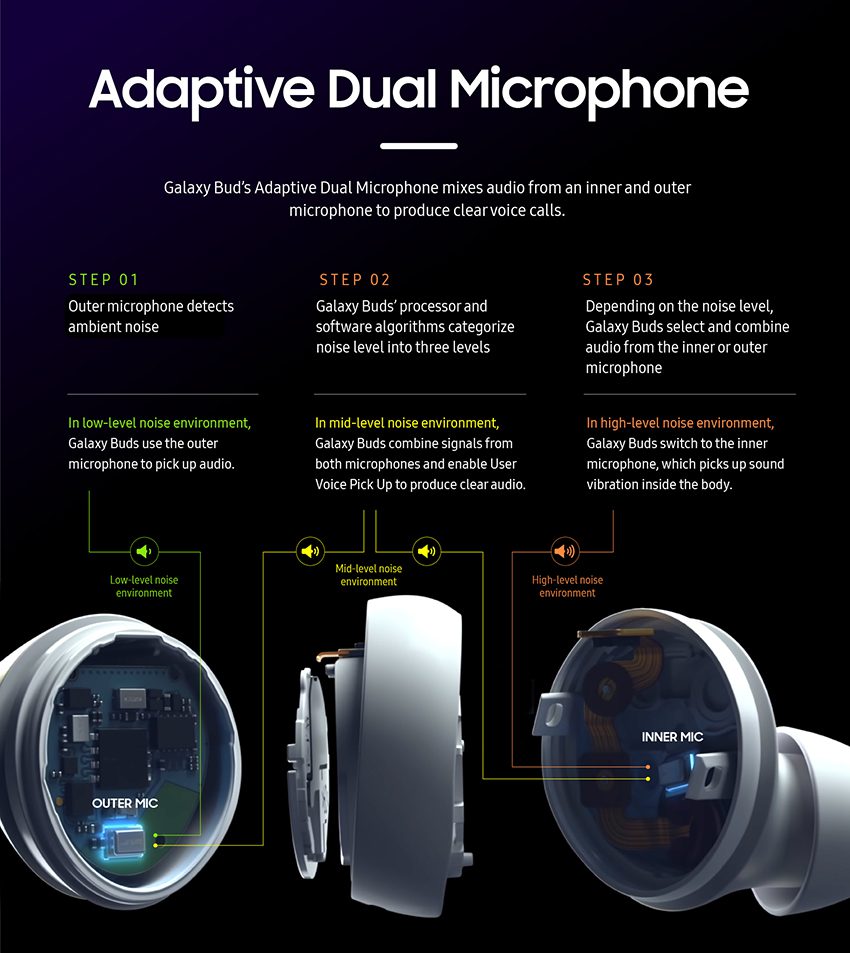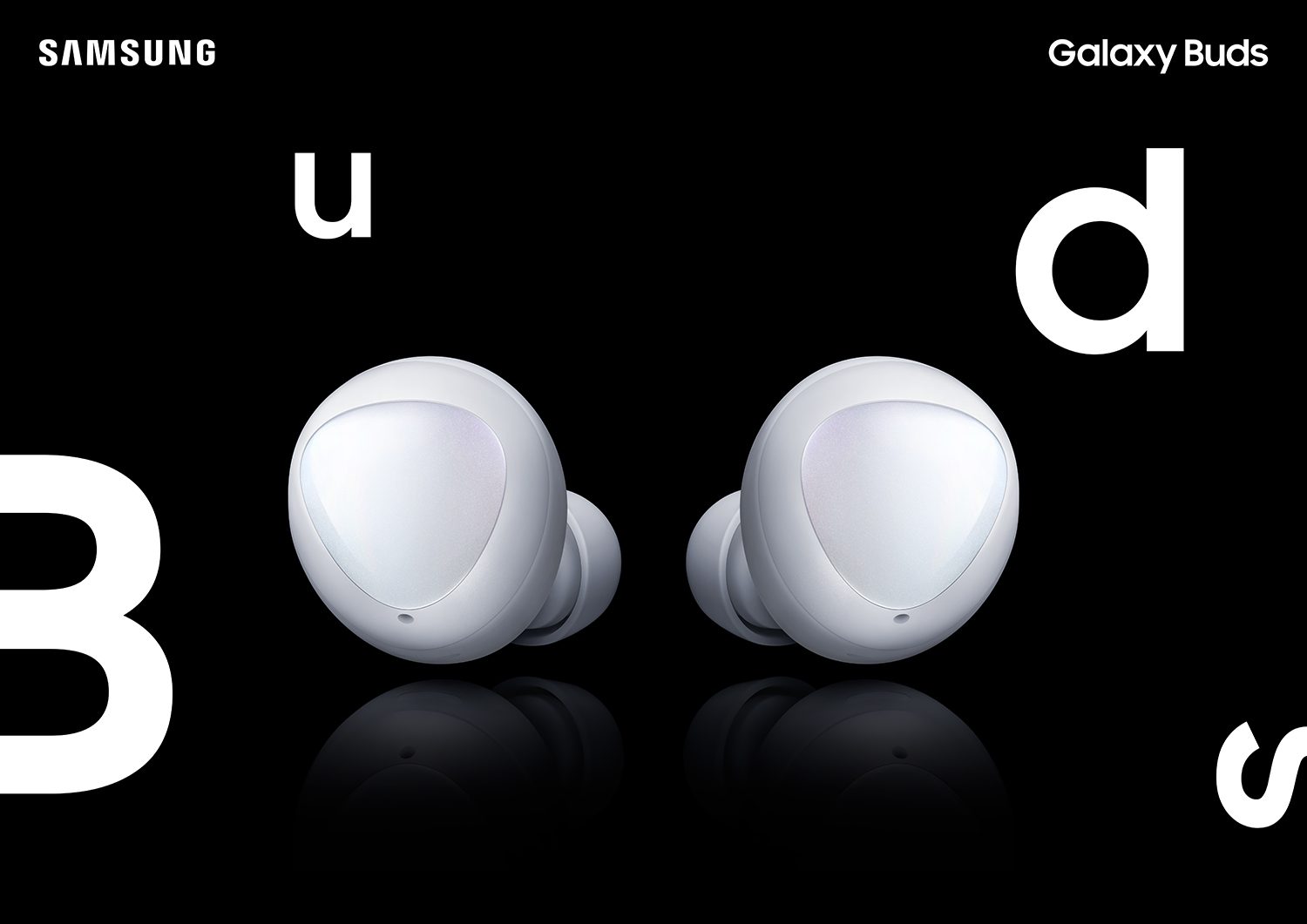Samsung’s Galaxy Buds are incredibly small devices which pack in a whole bunch of tech into not a lot of space. Since 2016, Samsung Electronics has been pushing the boundaries of the mobile audio experience with their wearable earbuds, and the latest iteration has proven to be quite a success.
Here’s a deep dive into the features, from acoustic design to software to form, that enable the wireless earbuds to provide a new mobile audio experience.
Sound by AKG
The latest Galaxy Buds mark the first time that AKG has collaborated on bringing outstanding sound quality to a truly wireless product. But what defines excellent sound quality? A cursory glance at audio reviews and audiophile forums will show that the answers are diverse. While some favor rich bass tones, others prefer headphones with a spacious soundstage.
There is, perhaps, no person better qualified to answer this than Dr. Sean Olive, Acoustic Research Senior Fellow at Harman International. For the past seven years, Dr. Olive and his team have been conducting in-depth research into the perception and measurement of headphone sound quality.
“Good sound is achieved when the headphones accurately reproduce the music without adding any audible distortion or noise to the original sound,” he says.

By testing the response of a wide range of listeners, Dr. Olive and his team have developed an objective tool to measure the sound quality of headphones. Dubbed the Harman Target Curve, the measurement helps audio engineers design headphones that replicate the experience of listening to music in a reference listening room.
“Sound quality involves different attributes, including spectral or timbral qualities, spatial qualities and distortion, and noise. The goal for AKG is to be as neutral, accurate and transparent as possible for each of these attributes,” he explains.
Described by Dr. Olive as “a perfect marriage between science, engineering, and art,” Galaxy Buds were tuned to the Harman Target Curve by acoustic engineers at AKG. The wireless earbuds achieved a truly impressive performance on the Curve, significantly higher than other wireless earphones, winning the praise of Dr. Olive.
“The sound quality of the new Galaxy Buds is impressive,” Dr. Olive says. “It is difficult to say they have any sonic personality, which is the ultimate compliment I can give.”
Combined with the customizable equalizer, which features five unique settings, users can tailor the tone of the Galaxy Buds to suit their tastes and different music genres. With eartips designed to maximize the noise-minimizing advantages of canal-type earbuds, Galaxy Buds let users listen to their favorite tunes, regardless of the surroundings.
Scalable Codec
In addition to perfecting the acoustics, designing wireless earbuds presents additional challenges. For one, the reliance on Bluetooth to transmit audio information makes wireless earbuds susceptible to interference.
Featuring Samsung’s proprietary Scalable Codec, Galaxy Buds ensure users can enjoy their favorite tunes without interruptions. The codec prevents audio chopping by changing the bit-rate according to the strength of the Bluetooth connection. When the wireless connection is weak, Scalable Codec automatically encodes the audio information with a higher compression ratio, allowing the earbuds to receive data without interruptions.

Adaptive Dual Microphone
Galaxy Buds’ noise-canceling capability extends beyond the listening experience. Featuring an Adaptive Dual Microphone, the wireless earbuds also minimize external noise in phone conversations.
The Adaptive Dual Microphone works by combining signals from an inner and outer microphone. While the outer receiver detects audio in the surrounding area, the inner microphone picks up vibrations resonating inside the body. By processing and mixing the two sources, the Adaptive Dual Microphone produces an accurate representation of the user’s voice. The microphones are further enhanced by SolomonVoice technology and Wind Noise Reduction capability to help Galaxy Buds deliver the user’s voice clearly.



